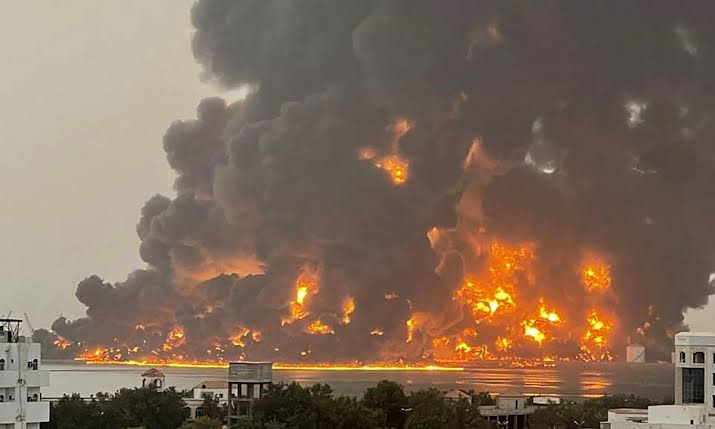
Israeli fighter jets have attacked crucial infrastructure in Yemen, targeting oil facilities at the seaport of Hodeidah and Ras Issa in retaliation to a series of missile attacks launched by Iran-backed Houthi rebels against Central Israel.
The Israeli Defense Forces (IDF) stated that the strikes targeted military bases and oil supply infrastructure used by the Houthis for transporting Iranian weapons and escalating tensions in the region.
Per reports from the Israeli military, the mission comprised of dozens of aircraft, including refuelers, fighter jets, and spy planes, flying over 1,800 kilometres to reach the targets.
After the attacks, the residents of Hodeidah saw smoke billowing from fuel storage tanks. Large parts of the city reported power outages.
The strikes were in response to the Houthis’ recent ballistic missile attacks on Tel Aviv and Ben Gurion Airport on Friday and Saturday. Israeli air defenses successfully intercepted the missiles, with no casualties.
However, the Houthis have increased their attacks on Israel, firing over 220 missiles and drones over the past 11 months, according to reports.
The Israeli Air Force (IAF) has confirmed that most of Hezbollah’s senior leaders in Lebanon had been killed in the bombardments.
Israeli Defense Minister Yoav Gallant reaffirmed his country’s commitment to defending its citizens, saying that “no place is too far” for Israeli military operations.
IDF Chief of Staff Lt. Gen. Herzi Halevi stated that Israel’s ability to strike distant enemies remained strong, stating, “We know how to reach even farther and strike accurately.”
The Houthis have claimed responsibility for a number of missile attacks in recent days, stating that their actions are in response to Israel’s operations in Lebanon and the killing of Hezbollah leader Hassan Nasrallah in an Israeli airstrike in Beirut.
Houthi leader Abdul Malik al-Houthi made it clear that Nasrallah’s killing will not go unanswered.
Iran’s Foreign Ministry condemned Israel’s airstrikes, accusing it of targeting civilian infrastructure such as power plants and fuel tanks. Iranian officials have expressed concerns over the impact of Israel’s military actions on regional stability and global peace.
In July, Israel launched its first strike on Yemen when a Houthi-fired drone hit Tel Aviv, killing one civilian and injured several others. The latest airstrike is Israel’s second major strike in Yemen in response to ongoing Houthi attack.
The Israeli military stated that it remained determined to take action against any threats that emerged from the region.















